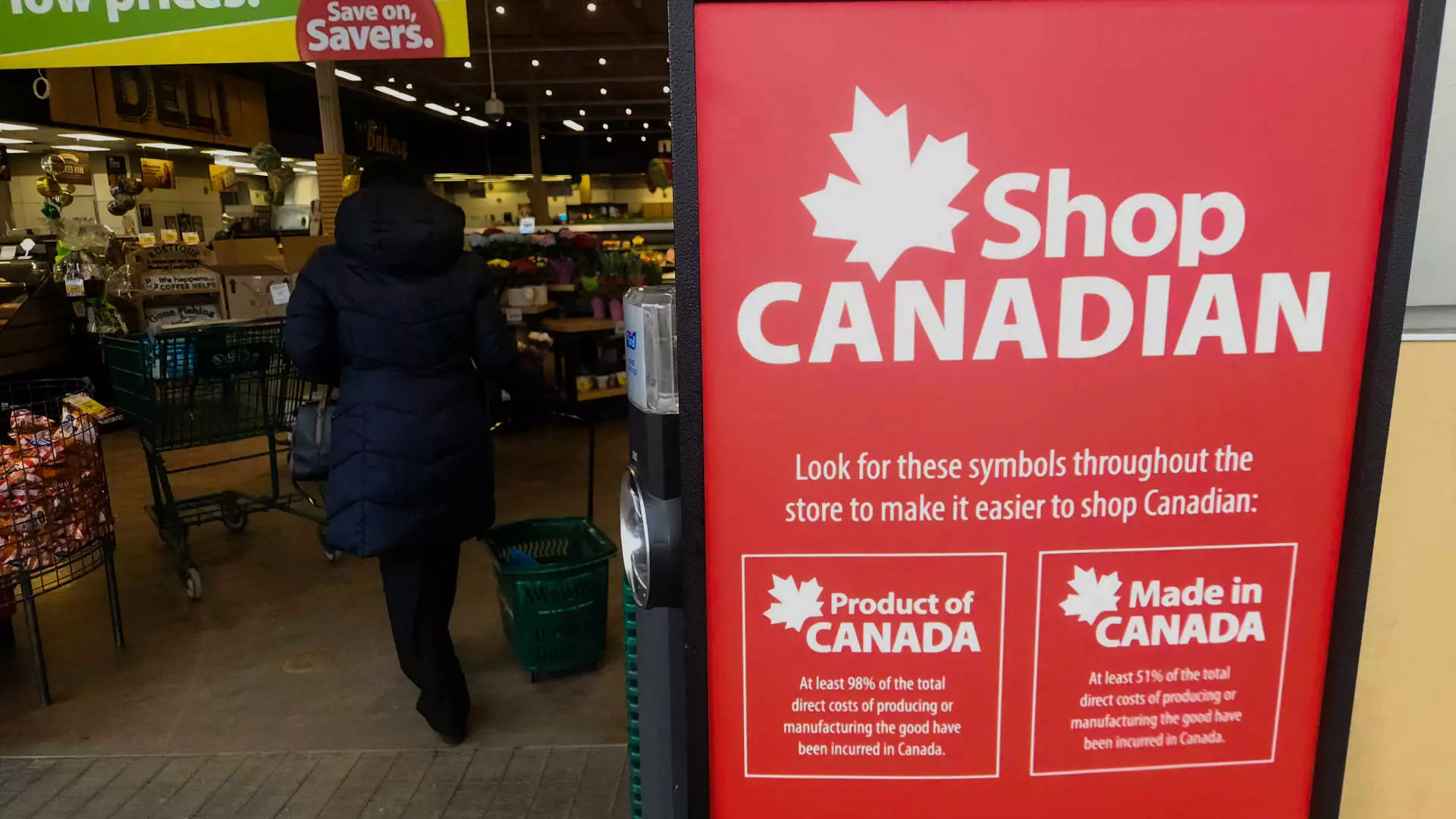The imposition of tariffs can feel like a blow to small businesses on both sides of the U.S.-Canada border, leaving many grappling with upheaval yet inexplicably intertwined in a political maneuver. President Donald Trump’s tariffs, launched with a fanfare of aggressive promises to bring manufacturing back to America, have provoked anxiety among Canadian business owners, who have weathered the tumultuous seas of trade for years. While his administration claims that these policies will balance the scales of trade, the reality is that many Canadian entrepreneurs feel personally attacked and abandoned by a neighbor they once considered a steadfast ally.
The historical context of U.S.-Canada trade is crucial. In 2024, transactions totaled an astonishing $762.1 billion, underscoring how deeply entrenched these economies are. Canadian businesses are dependent on U.S. market demand, exporting over three-quarters of their products south, while the U.S. unceasingly utilizes Canadian goods to meet its own consumption needs. Yet, with Trump instituting a 10% tariff on Canadian energy and a staggering 25% on myriad imports starting in March, and more recently escalating tariffs on auto components, the fabric of this alliance appears to be fraying.
Canada’s Response: A Stance of Defiance
In the face of these uncomfortable disruptions, the Canadian response has been layered, revealing a national pride that has grown into a grassroots resistance. Businesses like Balzac’s Coffee Roasters have creatively retaliated, renaming an espresso drink to the “Canadiano,” symbolizing a pride-driven shift against U.S. tariffs. Simultaneously, other retailers such as Your Independent Grocers are tagging products that meet domestic standards with the proud insignia of Canada: a tactic that transcends economic warfare and taps into emotional territory.
Trade is not merely an exchange of goods; it’s a relationship built on trust and respect. Corinne Pohlmann, a key advocate for independent businesses in Canada, reported worrying findings: over half of surveyed entrepreneurs no longer see the U.S. as a reliable trading partner. She highlighted how the emotional toll was eclipsing financial ramifications—the betrayal felt by Canadian businesses is palpable, and the repercussions extend beyond immediate costs.
The Ontario Liquor Control Board ceased purchases of U.S.-made products in a bold stand against tariffs, a move that also echoed national pride among its constituents. With signage proclaiming loyalty to local products “For the good of Ontario, for the good of Canada,” the message rang clear: this isn’t just about profits, but principles.
Trust Erosion: A New Era of Trade Relationships
The implications of these tariffs stretch across the trade landscape, impacting long-standing relationships between American and Canadian small businesses. Pohlmann has fielded questions from business owners seeking guidance on how to navigate negotiations with U.S. partners amid increased costs. In an environment where trust has eroded, forging new contracts becomes a formidable challenge, reflecting a reality where lost partnerships risk becoming the new norm.
The tariffs may be intended as strategic pushes within a broader geopolitical fight for influence, but these policies come at a cost of something more intangible: the soft power that has historically bolstered American prestige globally. Former Secretary of State Antony Blinken fears that, amid this chaos, the U.S. could significantly diminish its image, losing the very influence that has rendered it a superpower. It’s not merely about numbers, but perceptions and relationships, and it’s clear that the current direction could tarnish decades of accumulated goodwill.
While it is conceivable that tariff rates may shift in the future, the damage to relationships might become permanent. The trading partnership between Canada and the U.S. is now marked by fragility and skepticism; the path to restoring that trust is steep and fraught with challenges. Pohlmann articulates a stark truth: past assurances of cooperation may seem hollow amidst the prevailing currents of resentment and retribution.
As these two nations navigate the complexities of their intertwined fates, the once-reliable trading relationship dangles precariously, leaving Canadian small business owners pondering the depth of the emotional and economic rifts opening in what was once a trusted alliance. The sentiment among those on the ground in Canada feels grave, as they wrestle with the uncertainty of whether they can ever rebuild the bridges that now lie in ruins.

